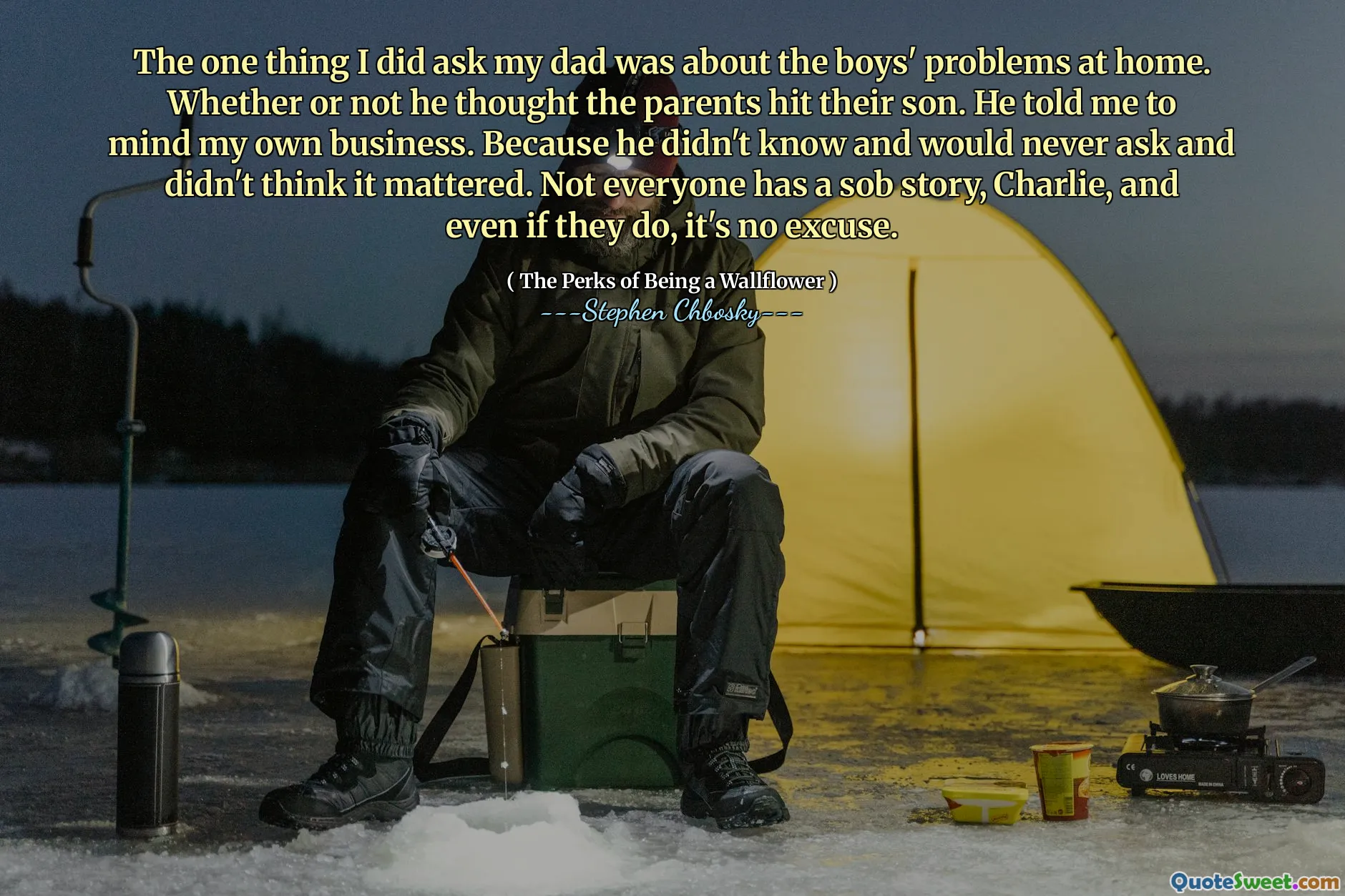
The one thing I did ask my dad was about the boys' problems at home. Whether or not he thought the parents hit their son. He told me to mind my own business. Because he didn't know and would never ask and didn't think it mattered. Not everyone has a sob story, Charlie, and even if they do, it's no excuse.
This quote reflects a profound understanding of human resilience and the importance of personal boundaries. It highlights how individuals often keep their struggles private, either because they believe others won't understand or because they prefer to handle their issues privately. The protagonist's question to his father about parental discipline reveals a desire to understand the underlying causes of behavior, yet the father's response emphasizes detachment—recognizing that sometimes, people choose not to confront certain issues. This detachment can be both protective and isolating; it might shield a person from unnecessary distress but also prevents meaningful support or intervention. The line 'not everyone has a sob story, and even if they do, it's no excuse' underscores a crucial societal perspective: suffering or hardship doesn't automatically entitle someone to sympathy or special treatment. It challenges the reader to consider the balance between empathy and personal accountability. Such themes resonate deeply because they mirror real-life situations where individuals carry unseen burdens while maintaining outward appearances or avoiding vulnerability. The quote serves as a reminder that everyone has their own battles, and understanding or helping them requires a willingness to look beyond surface appearances. It also questions societal attitudes towards pain and hardship, motivating a compassionate yet realistic approach to others' struggles. Ultimately, it calls for empathy, awareness, and respect for others' privacy, recognizing that sometimes, the most difficult problems are hidden beneath the surface and may never be fully understood by outsiders.







